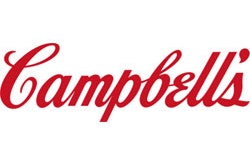SAN FRANCISCO (AP) — Hewlett-Packard is selling its webOS software to South Korean electronics company LG Electronics, securing a new home for a technological orphan.
The deal announced Monday rids HP of the centerpiece of its ill-fated, $1.8 billion purchase of Palm Inc. three years ago.
HP used webOS as its springboard into the smartphone and tablet computer market in 2011, but quickly scrapped the mobile devices running on the software amid disappointing sales. With that retreat, Hewlett-Packard Co. stopped developing webOS for its own products and gave away the underlying technology as open-source software for programmers elsewhere to modify for their own needs.
LG Electronics has grander plans for webOS. Initially, the software will be melded into a new line of Internet-connected televisions from LG Electronics Inc. If those are successful, LG Electronics is considering selling household appliances and other devices that run on webOS in an attempt to create a so-called "smart" home. That's a concept that could appeal to a generation of consumers who wouldn't consider leaving their homes without their smartphones.
In a sign of its commitment to webOS, LG Electronics is also acquiring the team of engineers who had been working on the software for HP. The precise number of HP workers transferring to LG Electronics wasn't disclosed. The affected employees currently work in San Francisco and Palm's former Sunnyvale, Calif. headquarters, and will remain based in those cities, according to LG Electronics. It still hasn't been determined if LG Electronics will take control of the employees' current offices or move them to other locations in the same cities.
The opportunity to pick up a pool of talented software programmers and gain control over the core of webOS were the main reasons LG Electronics wanted to do the deal instead of simply relying on the free open-source project, LG Electronics spokesman John Taylor said.
Financial terms of the webOS sale weren't disclosed. It's unlikely that LG Electronics had to pay much, given that HP had already absorbed $1.6 billion in charges to account for the diminished value of Palm and other costs caused by its decision to stop making webOS devices.
HP, which is based in Palo Alto, is in the process of eliminating 29,000 jobs in an effort to cut costs amid a slump that has seen its revenue falling for the past 18 months. Through January, HP had jettisoned more than 15,000 of the jobs targeted in its streamlining.
HP is still holding on to some vestiges of its Palm acquisition. Among other things, HP retains ownership of other computing coding outside webOS, along with Palm's hardware and Palm's customer contracts. HP will also continue to employ former Palm employees who weren't involved in webOS and will continue to handle customer support for people who still use Palm products made in the past.
Besides getting webOS' source code and other key parts of the technology, LG Electronics will take over stewardship of the open-software project.
HP is jettisoning webOS just as the company is gearing up to introduce a new tablet that features a 7-inch screen and will sell for just $169. The upcoming device, called Slate 7, will run on the popular Android software made by Google Inc. It will supplement a more sophisticated and expensive tablet computer designed primarily for business users. That tablet runs on Windows 8, a recently released makeover of Microsoft's ubiquitous operating system.
HP's stock fell 13 cents to close at $19.07.


















